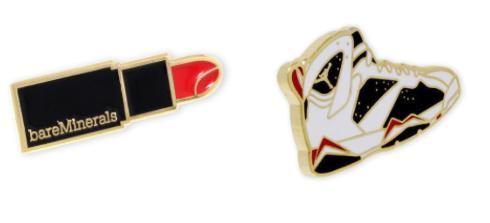News
Hard Enamel vs. Soft Enamel Pins
Hard Enamel vs. Soft Enamel
What's the difference? What do you suggest for the end user?
These are the most frequently asked questions when it comes to enamel pins. The questions are justified as the two are very similar. Quickly lets review how they are made:
Soft Enamel:
- Die struck or cast pin typically made from iron, brass or zinc.
- Striking or casting creates raised and recessed metal areas
- Metal is polished, plated, or dyed to the desired base color (gold, silver, black, copper, etc)
- After the metal is finished each cavity is filled with a single color, with each color separated by raised metal borders
Hard Enamel:
- Die struck or cast pin typically made from iron, brass or zinc.
- Striking or casting creates raised and recessed metal areas
- These cavities are overfilled with color and then ground back to create a flat polished surface.The grounding leaves the color and the metal borders on the same level.
- The pieces are then plated to the desired base metal finish (gold, siver, copper, etc),
What's the difference?
- Soft enamel is textured - raised metal with color recessed.
- Hard enamel is flat - color and metal are on the same level.
What do you suggest for the end user?
- Both methods use the same mold. When doing samples for approval we can sometimes offer samples of both finishes for the client to see in person. Some designs will finish better with soft enamel, others better with hard enamel based entirely on artwork. Often the sales rep can offer some insight as to what will work best.
- Soft enamel is cheaper and faster. While pricing will ultimately be based on the number of colors/complexity of design, soft enamel is almost always cheaper than hard enamel. Additionally because there is no grinding step, it is a much faster process to finish. This would be something to keep in mind if your client has a tight budget or is in a rush.
- For hard enamel, the grinding step leaves both the metal and color with a shine/polish creating a “higher perceived value”. The grinding however does not come without its limitations. Often small details can be polished out, or certain metal finishes not available (ie. dyed metal or antique). Again these are issues that our sales reps can coach you on.

